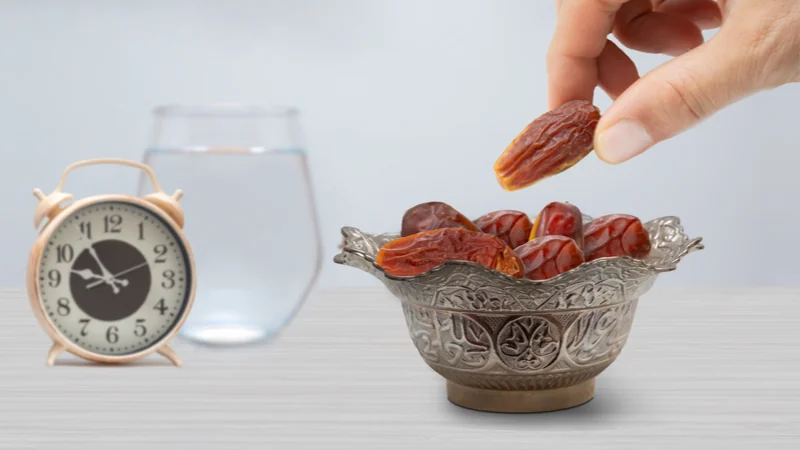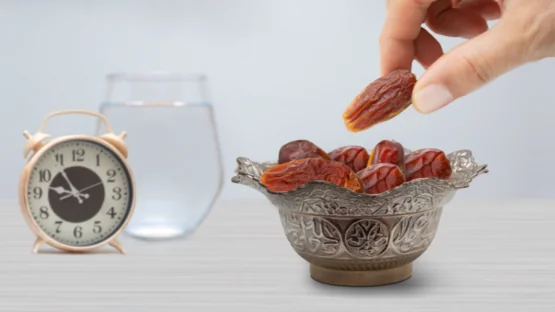A cohort study that was published in BioMed Central by Dr. Alsayyari and colleagues examined fasting on acute kidney injury incidence [1].
Background
Fasting during the month of Ramandan is a obligation in Islam with exceptions, such as for chronic illness that has a poor prognosis or is uncontrolled [2]. Our prior articles discuss the health benefits of intermittent fasting during Ramadan and how it can alter gut bacteria.
The data in this retrospective study was derived from emergency room patients at King Abdulaziz Medical City during Ramadan (fasting cohort) and the following month (non-fasting cohort) in 2016 and 2017. Each 499-patient cohort had stable baseline serum creatinine and did not have an end-stage kidney disease. Their baseline characteristics did not significantly differ, except for medications. Acute kidney injury (AKI) was diagnosed through serum creatinine and urine output, and the researchers used the Charlson Comorbidity Index (CCI) to categorize comorbidities of patients based on International Classification of Diseases (ICD) diagnosis codes [3].
Incidence of acute kidney injury was higher in the non-fasting group
The non-fasting group had AKI at a rate of 20.4%, compared to 13.4% for the fasting cohort. After adjusting for other important factors, the patients who were fasting had a 35% lower chance of AKI than the non-fasting patients. Specifically, the non-fasting group took significantly more medications that are considered to be damaging to the kidneys.
After controlling for the effect of fasting on the other variables in their statistical model, patients who had a CCI score greater than 4 and who were 60 years old and above had a higher risk of AKI than those with a CCI score less than 4 and younger than 60 years old. However, when they adjusted the model for all effects, this significant difference was no longer found.
Some comorbid conditions were improved with fasting
32.7% of the non-fasting group but only 21.7% of the fasting group had hypertension. Dyslipidemia, cardiomyopathy, ischemic heart disease, and diabetes incidence were similarly affected. The most pronounced differences involved liver cirrhosis (66.6% non-fasting vs. 30% fasting), chronic kidney disease (53.6% non-fasting vs. 36.4% fasting), and heart failure (45.8% non-fasting vs. 17.2% fasting). However, in hypothyroidism patients, the fasting cohort had a higher percentage who developed AKI (26.6% non-fasting vs. 36.8% fasting).
Hypertension, history of AKI, diabetes mellitus, dyslipidemia, a variety of heart conditions, hypothyroidism, and cirrhosis were all significant predictors of the occurrence of AKI in the researchers’ first analysis. When they controlled for the effect of all other variables in a stricter analysis, hypertension, liver cirrhosis, and a history of AKI were the only comorbid conditions that remained significant in predicting the occurrence of AKI. Additionally, non-fasting patients with a history of AKI were twice as likely to have another AKI than similar patients in the fasting group.
22.4% of the fasting group and 19% of the non-fasting group had a baseline serum fasting creatinine of under 60 micromoles per liter (µmol/L), which is associated with a lower chance of AKI. In this study, the use of kidney-damaging medicines was not associated with an increased risk of developing AKI.
Conclusion
This retrospective study had intrinsic limitations. Determining patient adherence to kidney-damaging medication was not possible, and this study was only conducted at a single center during a single chart review. There was also no washout period, and some patients may have developed AKI after the initial emergency room admission. However, if there was a washout period, it would have been limited to the first seven days of the following month. The researchers do not think that these limitations confounded their results, and they conclude with:
The results of this study showed a significant reduction in the incidence of AKI in the fasting cohort of patients as compared with a matched cohort of nonfasting individuals. Moreover, patients with additional risk factors for AKI were at lower risk of developing AKI in the fasting cohort than in nonfasting cohort. Thus, patients with an increased risk of AKI would not be harmed from fasting during Ramadan. Moreover, the benefit of fasting for patients with predisposing risk factors for AKI can be considered a nonpharmacologic intervention. Lastly, to have a better understanding for the effect of fasting on the risk of AKI in patients with comorbidities, large prospective studies are needed to confirm the findings of this study.
Literature
[1] AlAbdan, N. A., Almohammed, O. A., Altukhaim, M. S., Farooqui, M. A., Abdalla, M. I., Al Otaibi, H. Q., Alshuraym, N. R., Alghusun, S. N., Alotaibi, L. H., & Alsayyari, A. A. (2022). Fasting during Ramadan and acute kidney injury (AKI): a retrospective, propensity matched cohort study. BMC nephrology, 23(1), 54. https://doi.org/10.1186/s12882-022-02674-1
[2] Grindrod, K., & Alsabbagh, W. (2017). Managing medications during Ramadan fasting. Canadian pharmacists journal : CPJ = Revue des pharmaciens du Canada : RPC, 150(3), 146–149. https://doi.org/10.1177/1715163517700840
[3] Charlson, M. E., Pompei, P., Ales, K. L., & MacKenzie, C. R. (1987). A new method of classifying prognostic comorbidity in longitudinal studies: development and validation. Journal of chronic diseases, 40(5), 373–383. https://doi.org/10.1016/0021-9681(87)90171-8




